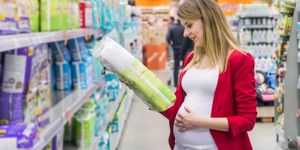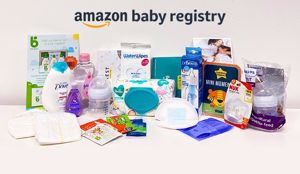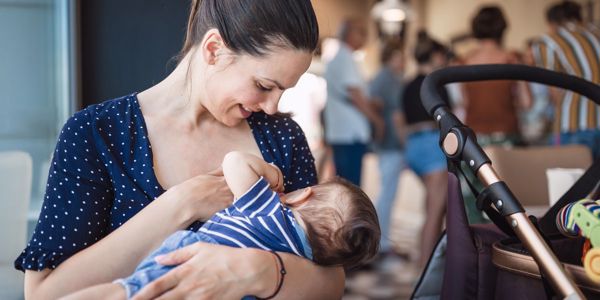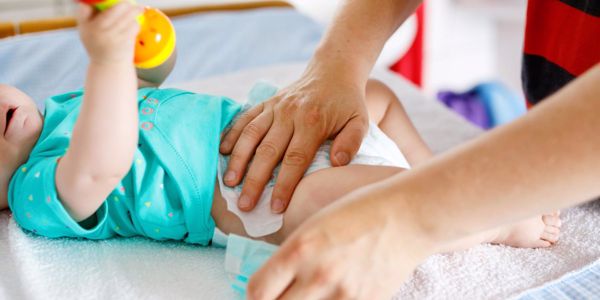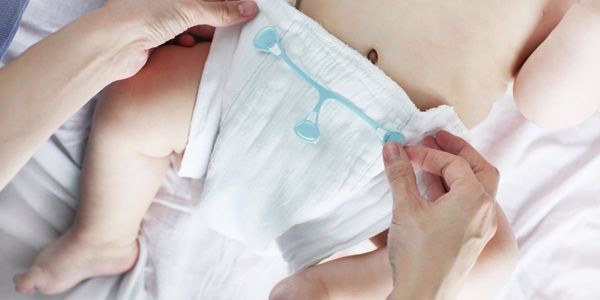After a baby is born, skin-to-skin contact initiates a special process babies go through shortly after birth which ends in them taking their first feed. As your baby begins feeding, all that milk will have to go somewhere. The 24 hours after birth will really let you master your diaper changing skills as you’ll be going through quite a few!
Babies are admittedly very expensive and will need you to financially support them, feed them, house them and spoil them until they eventually decide to flee the nest. We won’t lie to you, they’re not the cheapest. We’re here to shed some light on what babies really cost - sorry!
Babies, on average, pee every one to three hours and poop several times a day. Stocking up on diapers, whether they are single-use disposable or reusable, is a good idea before the birth. Unfortunately, knowing the baby’s exact size and weight before birth is impossible, so a little guesswork will be involved when buying the baby’s first diapers. You can also put this on your baby shower list to save you some money and also get a good variety ahead of time.
Simply click here and enter your details for your chance to win a $250 Amazon spend today!
Store-bought brands like Pampers, Huggies and supermarket specific brands usually come in sizes 0,1,2,3 etc. Newborns can be anything from size 0 to size 2, depending on their weight at birth. It may be a good plan to get a few sizes and keep the receipt for when you know exactly which size will be best and return any that may be too small. If they’re size 0, you can always keep the larger sizes for when your baby grows.
It will be good practice as you begin changing diapers to keep a note of your baby’s urine and bowel movements as your midwife will want to ensure your baby is thriving and there are no issues with digestion. To catch all the pee, your little bundle of joy will be going through between 6 and 8 wet diapers a day and will need to be changed every 3 hours or so. If you’re opting for formula feedings, expect this to go up to around 10 diaper changes per day as your little one will be taking in much more fluid than a breast-fed baby.
Your newborn will usually have their first bowel movement around a day or two after birth. The first poop is called meconium and its arrival is a really good sign that your baby’s digestion is working normally. These first bowel movements will have a black tar-like consistency. The meconium is made up of mucus, amniotic fluid and everything your baby ingested while he was in your womb.
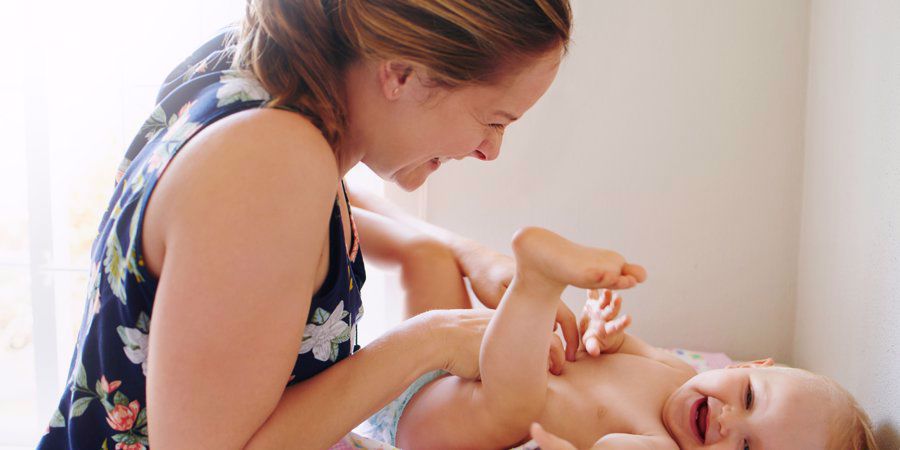
Babies that are fed formula will likely poop a few times a day. This, however, can vary from every other day to several times a day. This, compared to breast-fed babies who may poop once every 4 days to after every feed, means that you definitely need to stock up on diapers or have a lot of reusables on hand. Like breastfed babies’ poop, bottle-fed babies’ poop varies in color from pale yellow to yellowish-brown. The consistency will resemble more like that of an adult’s if formula-fed and will be bulkier, pastier and stronger-smelling as formula milk cannot be digested as fully as breast milk. This also means that bottle-fed babies are particularly prone to constipation.
After their first feed, your first milk, which is thick and yellow (colostrum), will protect your baby from infection. It has the added benefit of acting as a laxative, encouraging the baby’s first poop (meconium) out of your baby’s system. Once your milk comes in fully, about three days after you give birth, your baby’s poops will start to change and become lighter day by day from greenish-brown to a bright or mustard yellow shade. Expect to see more loose-textured poops to begin with, which may be slightly sweet-smelling. It can sometimes look quite seedy, like wholegrain mustard - but this is completely normal and is not to be confused with diarrhea.
The typical cost of a multipack of diapers is around $14-22 for 72 diapers, but you can buy these in bulk for a lot cheaper on sites like Amazon, through wholesale stores like Costco or even be claimed FREE through Your Baby Club. Expect to use around 50-80 diapers a week whilst your baby is newborn. This will reduce to around 40-50 per week once they are 2 months old and eventually be down to 20-30 once they reach 12 months old. You will notice that as your baby needs larger diapers, the price of the packs will go up, but as they go through less, it should work out roughly $8-12 a week, depending on their size and whether or not you buy in bulk.
[Read more: Reusable Diapers, Explained]
As your baby grows and you start to feed them mushy baby foods like blended carrots and enriched fruit purees, their poops will start to become more solid and they will start pooping a lot less often as their digestive system matures.
If your baby seems to be going through fewer diapers than considered ‘normal’, be sure to contact your midwife or visit a pediatrician as your baby may be dehydrated or constipated.If you’re unsure how to change a diaper or want to know more about reusable diapers, talk to your midwife or birthing center during your pregnancy or after the birth and they will certainly give you as much information as they can. Just know that your birthing center, midwife, pediatrician, and OB/GYN are all there to help, so ask questions! It is better to ask and know than to find out later you’ve been missing something important. When it comes down to it, all babies are different, and you’ll be able to discuss what to expect from your baby based more on their weight and any complications.

